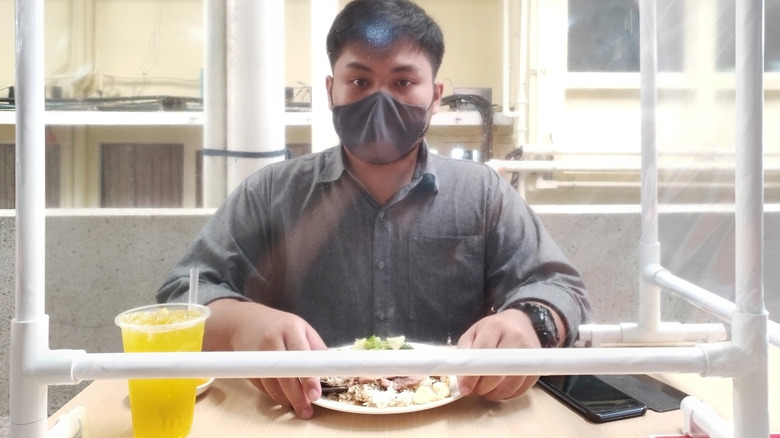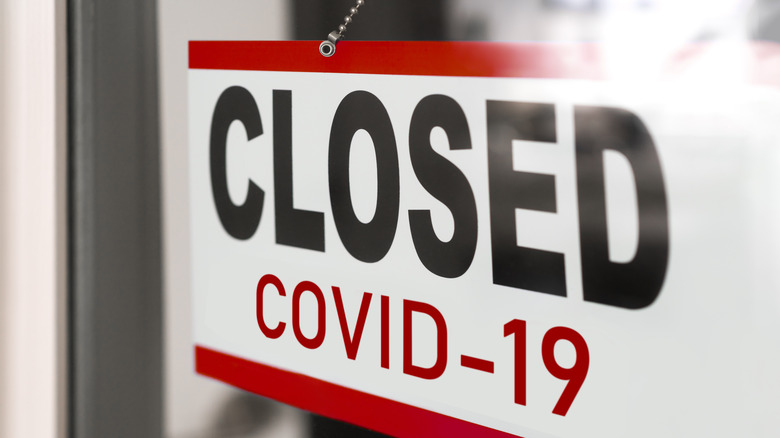COVID-19 Restaurant Barriers Might Be Doing More Harm Than Good
Plexiglass dividers have seemingly become a mainstay in our COVID-19 landscape. Now, however, British researchers have raised questions about their effectiveness. The government-sponsored research (via Gov.UK), which Eater stresses has yet to be peer-reviewed, states "screens are unlikely to provide any direct benefit in reducing exposure to the virus from droplets or aerosols when people are already located at 2 meters or greater or where they are not face to face."
If the findings hold up under scrutiny, then it seems the big problem is that the virus primarily spreads through the air via aerosols. The plexiglass screens stop larger droplets like the wet projectiles hurled when someone sneezes, but the lighter aerosols may float around the barriers. The dividers might also reduce the ventilation of an area, which allows the particles to hang around and get inhaled. Linsey Marr, professor of civil and environmental engineering at Virginia Tech, explained the difference in transmission to The New York Times: "One way to think about plastic barriers is that they are good for blocking things like spitballs but ineffective for things like cigarette smoke." The "cigarette smoke" (or aerosols in the case of COVID), will move around the barriers over time while also exposing the people sitting next to the smoker to a greater concentration of the smoke.
Ventilation was a reason many restaurants turned to outdoor dining during the pandemic. The airflow outside naturally dilutes the viral particles to the greatest degree. Vaccinations, however, remain the strongest defense against the ravages of COVID-19
Restaurants are worried
The information about the possible ineffectiveness of plexiglass barriers comes as restaurants are gearing themselves for what could be a difficult autumn. Restaurant Business reports that businesses are struggling to discern the possible chaos of the Delta variant. The CEO of Brinker International, the parent company of Chili's and Maggiano's Little Italy, noted a drop-off in patrons after a summer surge.
And, of course, Food & Wine recently recounted the CDC's recommendation to wear masks indoors again. Dave Query of The Big Red F Restaurant Group told Axios that the industry could see a tough winter like the last one. However, this time, the industry would not be entering the season blind. "We are doing our second tour of battle here," Query explained, "We know how to wear a mask and we know how to keep people safe."
Part of being ready for however the Delta variant changes things is knowing how useful the barriers are versus a well-ventilated area. With luck and proper, effective precautions, we hopefully won't have to see another disconsolate winter.

